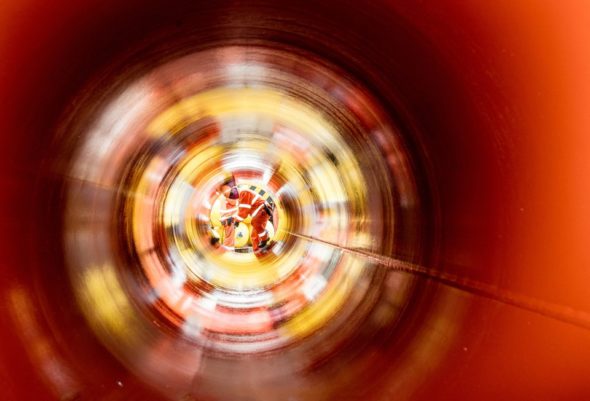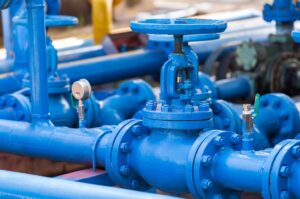Prospects of Nord Stream 2 are heavily complicated. Nevertheless, the NDAA 2021 provides an window of opportunity if not to completely l bypass sanctions, at least to greatly mitigate their effects – writes Madalina Vicari from University of Liege for BiznesAlert.com.
With the enactment of NDAA 2021 into law on January 1, the prospects of Nord Stream 2 are heavily complicated. The first step in this regard is the official announcement of the Norwegian company DNV-GL, that, in accordance with the sanctions, it will cease all inspection activities for Nord Steam 2, and, most importantly, it is unable to issue a certificate for the completion of the pipeline.
At the end of November, DNV GL had announced that, due to the prospects of US sanctions, it would not be able to provide testing and verification services for equipment used on the Nord Stream 2 pipe-laying vessels. However, at that time, it had maintained open the possibility of pipeline’s certification.
The role of the DNV GL has been critical within the whole process of Nord Stream 2 construction. Both pipelines, Nord Stream 2 and Nord Stream 1, were designed in accordance with the company’s unique standard for subsea pipelines, DNV OS-F101. As Nord Stream 1 had opted for the certification of DNV GL also in operational phase, it had been expected, before the sanctions for the company to become reality, for the company to play an important role in Nord Stream 2 operational phase, as well. As a matter of fact, the permit issued in 2019 by the Danish Energy Agency is for the commissioning and operation (!) of Nord Stream 2.
And the permit requires for Nord Steam 2 AG to settle a monitoring and safety system, and also regular monitoring and inspections of the pipeline, after the start of its operation. Given that DNV GL will be able to provide neither certification of the pipeline, nor the inspections required by the permit, the situation is very complicated for Nord Stream 2 AG, because it must find a company, which must be a third party, willing to assume the risks of being sanctioned.
Furthermore, as the US sanctions cover the underwriting services, insurance, and reinsurance for the pipe-laying vessels working on Nord Stream 2, they will potentially hit the Swiss company Zurich Insurance Group AG. Therefore, it is expected that also the Swiss company would announce its withdrawal, unless it would accept to be subject of sanctions. The law has a de facto 30- days wind down period for any company engaged in good faith efforts to wind down operations.
Nevertheless, the NDAA 2021 provides an window of opportunity if not to completely l bypass sanctions, at least to greatly mitigate their effects. According to the law provisions, sanctions do not apply with respect to the European Union, EU Member states, Norway, Switzerland, and UK governments, and „any government entity of any of them” that is not operating as a business enterprise „.
As the Western companies operating in the spheres of certification/ inspection, and insurance unwilling to get involved into the project because of the sanctions, it might be a legal trick to protect the companies from US threats. According to German media reports, the government of Mecklenburg-West Pomerania is preparing to set up a non profit foundation, „Stiftung Klimaschutz MV”, which would bring under its umbrella, the companies that would work for Nord Stream 2 completion and further operation. According to media reports, Manuela Schwesing (SPD), the prime minister of Mecklenburg-Pomerania, would reportedly be in charge of the preparations of the foundation. And the ex prime minister Erwin Sellering (SPD) will be the president of the foundation. Erwin Sellering is the co-founder and the chairman of the German-Russian Partnership Association and he expressed a forceful opposition against the US sanctions on Nord Stream 2.
However, it is important to mention that a critical role would have the implementation of the sanctions, namely the way in which the guidelines of application would be crafted. And here an important role might be played by the lobbying process. If the guidelines would leave open this possibility, of not sanctioning non governmental entities, then it would be definitely exploited in the sense described above.
It remains to be seen.









